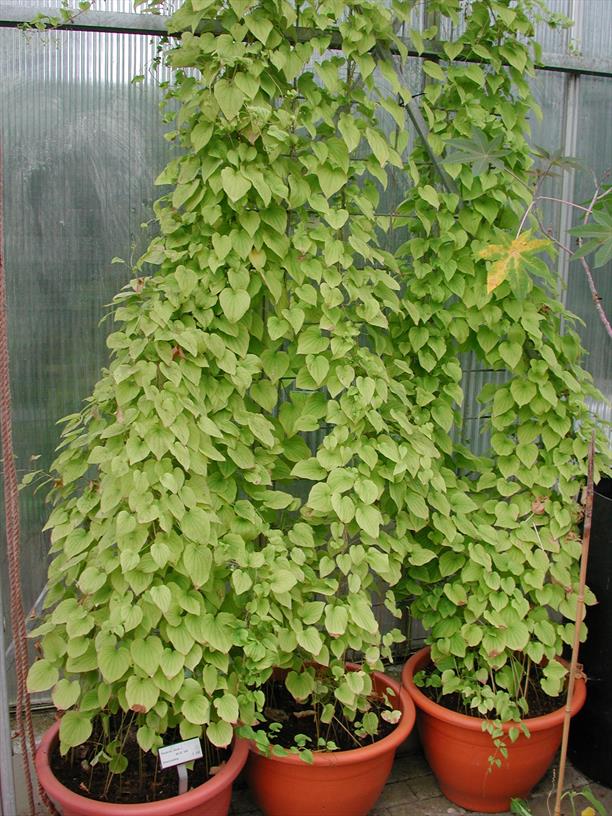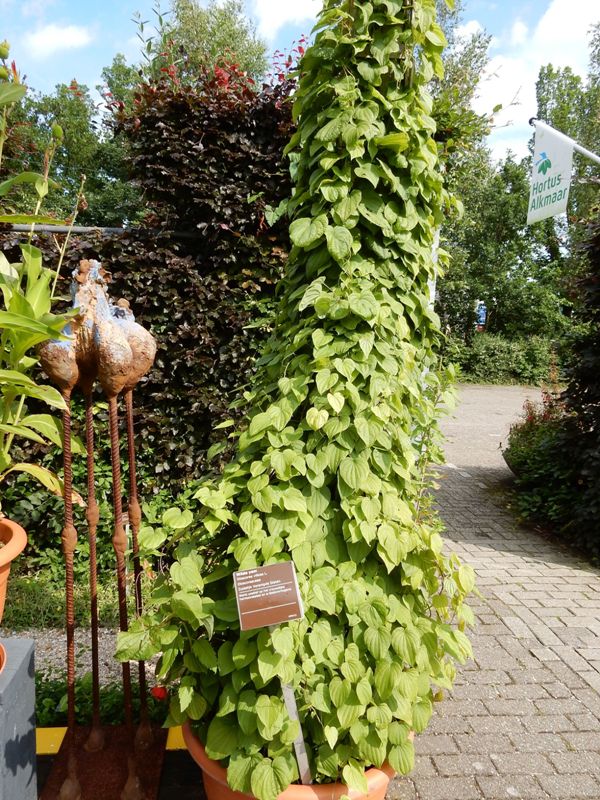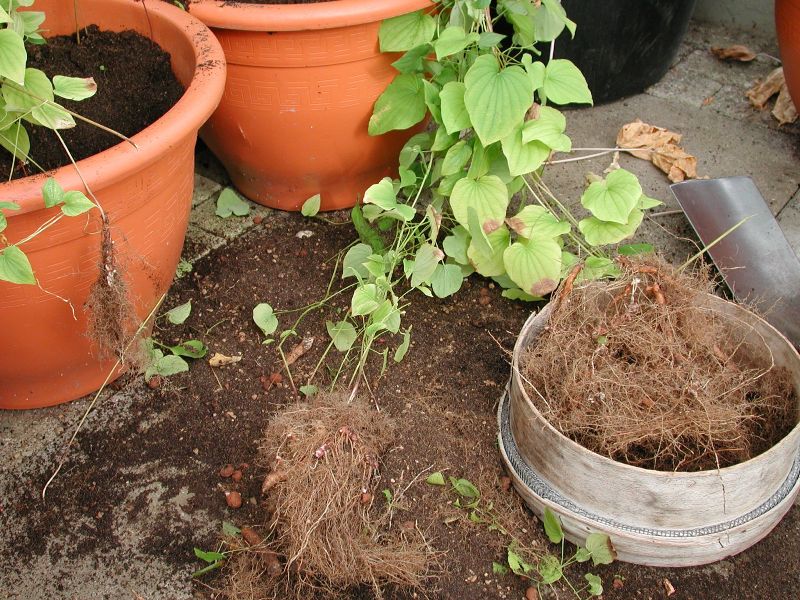Colic Root
Dioscorea villosa
Yam family (Dioscoreaceae)
A yam for women
Dioscorea, the wild yam, is an economically important genus from tropical Africa, Asia and America. There are over 500 species. Yams are long vines with alternately arranged, yellow-green leaves that are simple, heart-shaped and have a striking pattern of veins arising from a single point. Sixty species are referred to as 'yams' - edible tubers. These tubers are an important staple food, similar to the potato.
Dioscorea villosa is a climber with small, white flowers from Central America. Dried tubers from this wild yam have been used for centuries in traditional medicine. In homeopathy however the fresh root is used, harvested just after flowering. Doctors prescribe it to women with a hormone imbalance such during menstruation, pregnancy and in childbirth, and also around the menopause.
Themes
Crown jewel in the Alkmaar Botanic Garden.
Wild yam roots, and the roots of many other members of the genus, contain diosgenin, a compund widely used in modern medicine.
Edible species of Dioscorea have opposite leaves whilst poisonous species have alternate leaves. Use of the fresh plant can cause vomiting and other side effects.
Details
| Description: | Herbaceous climber, up to 3 m, twining, tuberous vine; dioecious. |
|---|---|
| Distributions: | Eastern north america |
| Habitat: | Borders of bogs, marshes, river and lake margins, stream bottoms, sandy or rocky soils, moist or dry woods, thickets, limestone slopes, roadside verges; 0-1500 m in altitude. |
| Year cycle: | Perennial (trees and shrubs included) |
| Hardiness: | Colder than -4 f (very hardy) |
| Flower color: | White, green |
| Notes on flowers: | Individual flowers are either male or female and are to be found on separate male or female plants. |
| Fruit color: | White, green, brown |
| Notes on fruits: | A broadly-winged, trilocular capsule, each locule containing 2 seeds, sometimes only 1. the capsule ripens from green to brown in the autumn. |


